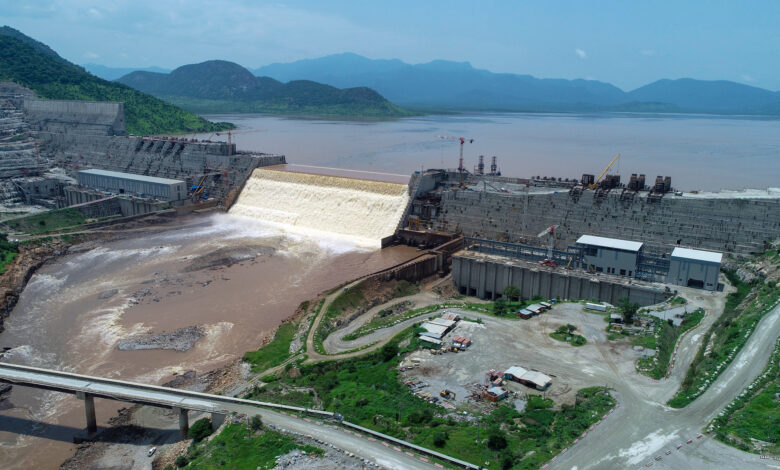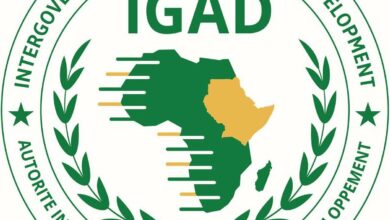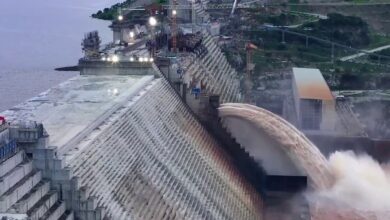Nahda Dam.. Operation of a second turbine and emphasis on dialogue and negotiation

Ethiopian Prime Minister Abiy Ahmed called on Egypt and the Sudan on Thursday to dialogue and negotiate as the ideal solution for working for all parties on the file of the Renaissance Dam.
During his speech on the occasion of the operation of the second turbine to produce electricity from the Renaissance Dam, Abiy Ahmed said that his country had made it clear more than once to the downstream States that his country did not intend to harm them.
The second turbine was turned on after storing 22 billion cubic metres of water in the third filling process.
Last February, the Ethiopian government announced the operation of the first turbine with a production capacity of up to 375 megawatts of electricity.
Egypt and the Sudan continue to hold on to a binding legal agreement that coincides with the autumn in which Ethiopia begins filling the dam.
Although Ethiopia has not announced the beginning of the filling, there is unconfirmed news that the third mobilization will be completed and announced in the coming days.
At the end of last month, Egypt expressed its total rejection of Ethiopia’s continued filling of the Renaissance Dam without agreement with Egypt and the Sudan on filling and operating the dam, in a letter from Foreign Minister Sameh Shukri to the UN Security Council.
The Egyptian Minister considered Ethiopia’s continued filling of the dam to be an explicit violation of the 2015 Declaration of Principles Agreement and a “grave” violation of the rules of international law that obliged Ethiopia, as a State of origin, not to prejudice the rights of downstream States.
“During the negotiations over the past years, Egypt has sought a just and equitable agreement on the Renaissance Dam, but Ethiopia has failed in all efforts and efforts to resolve this crisis.”
Egypt accuses Ethiopia of violating the preliminary agreement signed between the three States in 2015, and prohibits any unilateral action in the use of the river’s waters.
The dam, which is expected to be Africa’s largest water electricity generation project, has provoked regional disagreement since Ethiopia launched the project in 2011.
The downstream States of Egypt and Sudan fear the dam’s repercussions on their water security, while Addis Ababa stresses its importance for electricity generation and development.





